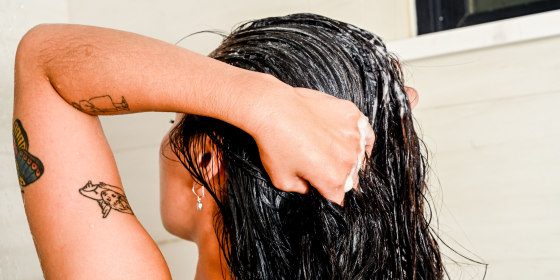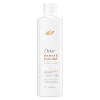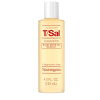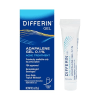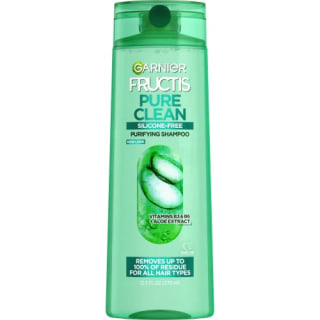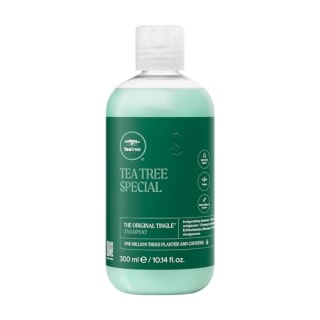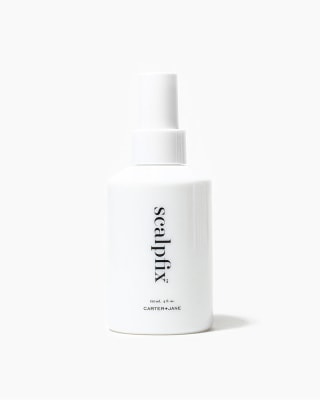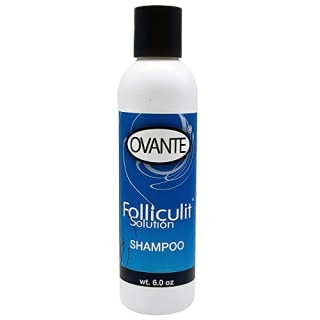When it comes to acne, nowhere on your body is safe — breakouts can appear on your scalp or hairline, felt, but not seen. As its name suggests, scalp acne consists of whiteheads and blemishes directly on the scalp caused by excess sebum, says board-certified dermatologist Dr. Steven Shapiro, founder of Shapiro MD hair care line.
We interviewed dermatologists and hair experts about the best ways to treat and prevent scalp acne, including which ingredients to look out for and avoid, along with our go-to product recommendations.
Want more from NBC Select? Sign up for our newsletter, The Selection, and shop smarter.
The best scalp acne shampoos and treatments in 2025
All of the products below come recommended by experts and are made with common pimple-fighting ingredients, including salicylic acid and glycolic acid. Regardless of which product you use, you may notice an immediate drying effect; but don’t worry, scalp acne can take a few days to heal, says board-certified dermatologist Dr. Jessie Cheung.
Best for dry scalps
Board-certified dermatologist Dr. Debra Jaliman recommends Neutrogena’s T/Sal Therapeutic Shampoo because it has salicylic acid, a common hair and skin care ingredient that helps to unclogs hair follicles and remove excess sebum. T/Sal is also dermatologist Dr. Rina Allawh’s favorite shampoo for dandruff in our guide to the best shampoos for every scalp and hair type. It’s a powerful keratolytic, meaning it helps to remove thick, scaly patches from the scalp, she says.
Best overall
Board-certified dermatologist Dr. Joshua Zeichner recommends Dove Dermacare for his patients who want to address scalp acne. It has zinc pyrithione, which lowers yeast on the scalp, reduces inflammation and decreases the number of scalp bumps, pimples and flakes, says Zeichner. He suggests letting it sit on the scalp for five minutes before rinsing to “allow it enough contact time for it to do its job.” It's also a favorite of board-certified dermatologist Dr. Hadley King, who says its mild formula can decrease yeast on the skin without causing irritation.
Best for oily hair
If you have oily hair, King recommends this option for less buildup and managing greasiness. Salicylic acid helps to exfoliate the scalp and remove residue, she says. It also has niacinamide, which helps support scalp health, and glycerin and aloe, which hydrates and soothes the scalp, says King.
Best color-safe shampoo
Certified trichologist (hair health expert) William Gaunitz calls this highly rated shampoo his “go-to” for scalp acne. The paraben-free, color-safe shampoo relies on tea tree oil, which decreases surface bacteria, to rid hair of impurities and soothe the scalp, says Cheung.
Best splurge
This shampoo from CLn is great for cleansing without stripping your scalp of moisture, says Cheng. Though this shampoo is more expensive than the drugstore options on this list, it’s a worthy investment thanks to its gentle, salicylic acid formula, says Cheung.
Best scalp acne treatment gel
Before you ask — yes, you can use acne spot treatments formulated for your face on your scalp. They might be messy because they likely won’t blend into your hair, but they’re still functional against scalp acne in a pinch, says Cheung. Differin has adapalene, a popular retinoid known for treating blackheads, teen acne and adult acne. The results are not immediate; it can take up to 12 weeks for acne to clear up, according to the brand.
Best dry shampoo
Zeichner recommends using Carter + Jane’s Scalp Fix dry shampoo if you’re unable to shampoo your hair frequently. Witch hazel and peppermint oil help soothe the scalp and remove excess oil, according to Zeichner, which can improve flakes and scalp acne. It’s also formulated with rosemary oil, which Zeichner says has astringent benefits.
Best with tea tree oil
This shampoo is great for treating scalp acne because it has tea tree oil, which has antibacterial properties, says Jaliman. It also has lactic acid, a popular type of alpha hydroxy acid that helps unclog pores, she says. The brand recommends using one to two tablespoons of shampoo on your wet hair and scalp and letting it soak for up to five minutes before rinsing.
How to shop for scalp acne shampoo
Clarifying shampoos help to remove buildup on your scalp, says Cheung. She and other dermatologists recommend focusing on specific ingredients when shopping for shampoos, gels, sprays and other scalp acne treatments.
Ingredients to look for
King says that salicylic acid is key: “It penetrates into pores to gently exfoliate and remove excess oils,” and is an “excellent comedolytic,” meaning it inhibits the formation of blemishes. “If you are prone to acne on the scalp and/or body areas adjacent to the scalp, then try a shampoo that contains salicylic acid.”
Cheung is also a fan of hair care products that have tea tree oil, sulfur and benzoyl peroxide, all of which decrease surface bacteria. Shampoo made with coal tar “decreases inflammation while exfoliating the scalp” and dandruff shampoos will minimize oil production, says Cheung.
Lastly, Zeichner recommends keeping an eye out for zinc pyrithione, which he says “helps lower levels of yeast on the scalp that contribute to pimples to begin with.”
Ingredients to avoid
As for the ingredients you shouldn't be using, Cheung suggests avoiding:
- Sulfates, which produce lather to clean the scalp but “can cause excessive drying which leads to irritation,” she says.
- Dimethicone, which smoothes dry hair but can cause build up on the scalp.
- Triclosan, a “controversial antimicrobial” because it can act as a hormone disruptor, says Cheung.
Frequently asked questions
Tucked under your hair, scalp acne might not be as glaring as a huge zit on your nose, but it’s still a nuisance. Sometimes, what looks like acne on your scalp could be folliculitis , according to the American Academy of Dermatology (folliculitis is the catch-all medical term for the number of ways a hair follicle can become inflamed). Or, it could just be regular acne. Scalps are loaded with oil glands and the buildup of dead skin, oil and hair products can create a perfect environment for bacterial overgrowth that leads to pimples, says Cheung, who adds that sweat, friction and humidity can also cause scalp acne.
Zeichner also lists an overgrowth of yeast as a potential trigger for scalp acne. “This is the same thing that contributes to flaking and dandruff,” he says.
An easy way to prevent scalp acne is to switch up the products you use or modify how you use them. Oil-based hair care products“block oil from being released from pore or follicular openings,” says board-certified dermatologist Dr. Lindsey Bordone of Columbia University Medical Center. She advises swapping out such oil-based items for lighter, water-based styling products. If you prefer using thicker hair styling products, apply them at least an inch away from your scalp to prevent acne, she says.
Speaking of application, how you apply your treatments can also make a big difference in their effectiveness. Although a lot of the products are technically called shampoos, it’s important to use them as scalp treatments, says Zeichner. He recommends rubbing them onto your scalp and letting them sit for at least five minutes before rinsing. “This allows the active ingredient to exert its effect on the skin,” he says.
The bad news is that if your scalp acne is genetic or hormonal, it’s a bit trickier to treat. Pregnant women, for example, can produce progesterone, a hormone that can cause oil glands to secrete more sebum, which builds up on your scalp, congests your pores and leads to scalp acne, says Shapiro. In those instances, the safest and most effective solution is to book an appointment with a board-certified dermatologist who can help you figure out treatment options.
And one last thing: picking. “Don’t do it!” says King. “It will only aggravate the problem, prolonging the time to heal and increasing the risk of infection, inflammation, discoloration and scarring,” she says.
In mild cases, usually it doesn’t. However, experts warn that severe cases can lead to hair loss due to scarring, hair follicle damage and more. “If there are very inflammatory nodulocystic acne lesions, there could be enough inflammation to lead to scarring, and this could include scarring of hair follicles, which would lead to hair loss,” says King. If hair loss becomes an issue, Zeichner recommends that for those “experiencing scalp, pimples or flaking it’s important to treat it as part of any regimen that treats thinning hair.”
Meet our experts
At NBC Select, we work with experts who have specialized knowledge and authority based on relevant training and/or experience. We also take steps to ensure all expert advice and recommendations are made independently and without undisclosed financial conflicts of interest.
- Dr. Steven Shapiro is a board-certified dermatologist and founder of Shapiro MD hair care line.
- Dr. Jessie Cheung is a board-certified dermatologist with practices in Chicago, Illinois and New York City. She has also offered her guidance in Select’s guides to the best clarifying shampoos and scalp scrubs.
- Dr. Hadley King is a board-certified dermatologist in New York City. She has also offered her guidance in Select’s guides to the best drugstore shampoos and razor burn treatments.
- Dr. Joshua Zeichner is an Associate Professor of Dermatology and the Director of Cosmetic & Clinical Research in Dermatology at Mount Sinai Hospital in New York City. He has also offered his guidance in Select’s articles on treating razor burn and preventing adult acne.
- Dr. Debra Jaliman is a board-certified dermatologist in New York City. She offered her guidance in Select’s guide to the best shampoos for dry scalp.
- William Gaunitz is a certified trichologist (hair health expert). He has also offered his guidance in Select’s guide to the best drugstore shampoos.
- Dr. Lindsey Bordone is a board-certified dermatologist in the Department of Dermatology of Columbia University Medical Center.
Why trust NBC Select?
Nicole Saunders is a former associate commerce editor for Select on NBC News, covering wellness and lifestyle.
Ashley Morris is an associate SEO reporter covering skin care, wellness, and more for NBC Select. For this piece, they spoke to experts — including trichologists and board-certified dermatologists — to find out everything you need to know about scalp acne shampoos and treatments.
Catch up on NBC Select’s in-depth coverage of tech and tools, wellness and more, and follow us on Facebook, Instagram, Twitter and TikTok to stay up to date.

